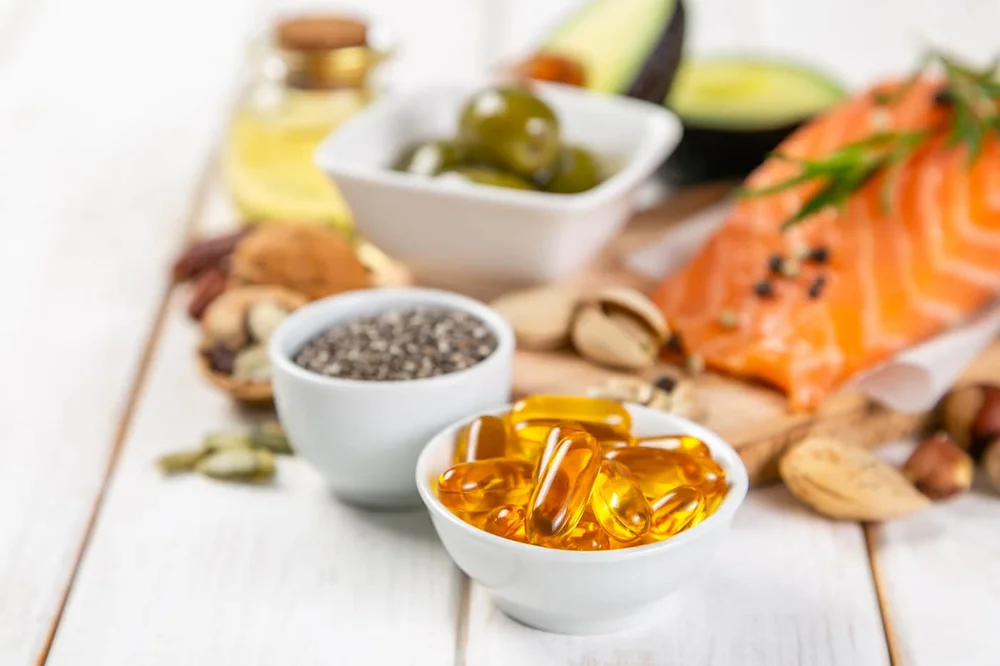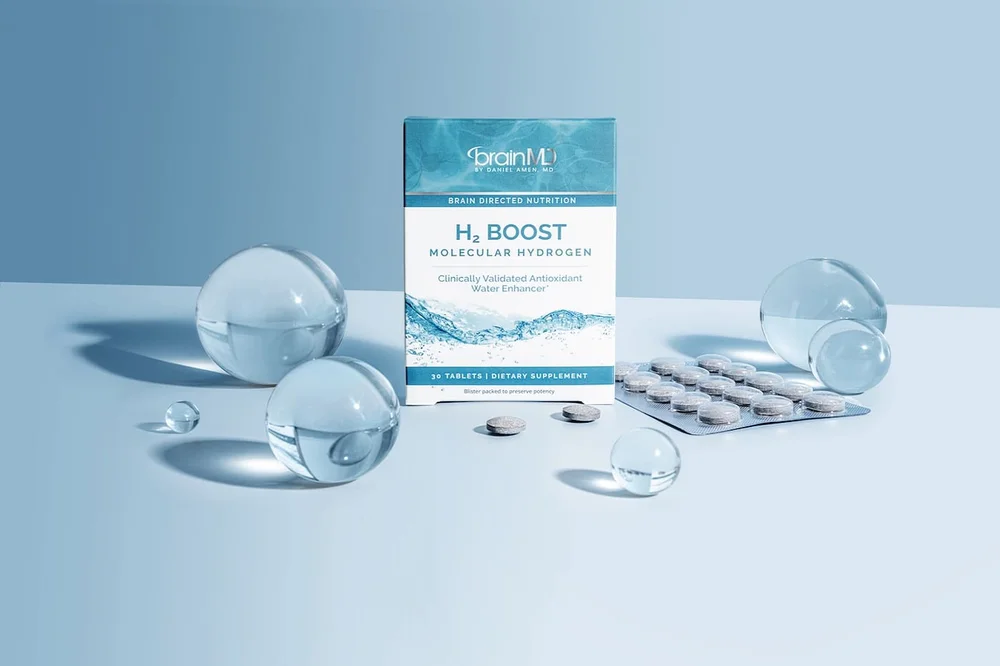Why Your Collagen Depletes With Age & How to Increase Collagen Naturally
Collagen is undoubtedly one of the buzziest anti-aging/beauty supplements on the market today – and for good reason.
A critical fibrous protein, collagen serves to provide structure in all the connective tissues in your body, accounting for a full 30% of your body’s total protein composition.
Yet, as a normal part of aging, levels of this important structural protein start to decline in early adulthood. And as your collagen levels decline, you can start to see and feel the unwanted effects of aging.
But here’s the good news and the reason collagen supplementation is so popular, collagen peptides can help counter the effects of collagen loss. In fact, they’ve been shown to boost collagen synthesis, improve skin elasticity, as well as help support healthy joint mobility and functionality and bone strength, according to a 2023 review article.
Here’s what you need to know about collagen depletion and what you can do to rebuild your body’s levels of this remarkable and indispensable structural protein.
About Collagen
Collagen is the master building block of your body’s skin, bones, muscles, tendons, ligaments, and other connective tissues. It makes up about 80% of your skin, your body’s largest organ, and works closely with elastin to provide your skin its structure and maintain its shape. Additionally, collagen is the primary structure in your blood vessels, intestinal lining, and organs.
Your body produces collagen naturally by breaking down the proteins you consume into smaller components called amino acids. Nearly 60% of collagen is made up of three amino acids: proline, glycine, and hydroxyproline (a derivative of proline).
When your collagen levels are abundant, your skin is soft, smooth, and firm. The collagen aids the skin cells in repair and renewal. Your muscles are more flexible, joints are healthy, and movement is free and easy without pain.
Collagen Depletion
Collagen synthesis and quality remain healthy and robust usually until early adulthood (around your mid-20s). That’s when your body begins to lose collagen faster than it synthesizes it, and the quality of your collagen begins to degrade. Your body then continues to lose about 1 to 1.5 % of its collagen each year. By the time you reach age 80, you will have lost roughly 80% of your body’s collagen!
Signs of Collagen Loss
There’s no way to measure the amount of collagen in your body, but there are noticeable signs of collagen loss such as: collagen loss in face (fine lines, wrinkles, loss of elasticity, dryness, hollowing); collagen loss in skin (wrinkles, sagging skin, brittle hair and nails); joint problems (stiffness, inflammation, pain); gut health issues (leaky gut); bone health issues (bone loss/bone weakness); and more.
Factors That Increase Collagen Loss
There are influences that may speed up the loss of collagen by degrading collagen fibers and impairing collagen synthesis.
Hormonal shifts (menopause), genetics, and ethnicity can impact collagen loss.
Lifestyle influences can increase collage loss as well, including:
- Exposure to UV radiation
- Regular consumption of refined carbohydrates and refined sugars that spike blood sugar levels
- Smoking
- Exposure to pollution/chemicals
- Alcohol consumption
- Habitual poor sleep
- Lack of exercise
- Nutritional deficiencies
- Stress
3 Tips for Rebuilding Your Collagen Levels

1. Improve Your Lifestyle Habits
Counter the lifestyle habits listed above that can degrade collagen and hinder collagen synthesis: wear sunscreen, reduce sugar intake and drink minimal alcohol, get restful sleep, quit smoking, exercise and practice mindfulness, etc.
2. Consume Collagen-Boosting Foods
Consume protein-rich foods such as fish, poultry, lean meat, eggs, low-fat dairy, legumes, and tofu as they all contain the amino acids – glycine, proline, and hydroxyproline – that your body uses to make collagen. Ensure you get zinc and vitamin C in your diet as they’re needed in collagen production too. Consume amino acid-rich, collagen foods such as bone broth and gelatin.
3. Supplement With Collagen Peptides
Take a quality collagen peptide (also called hydrolyzed collagen) supplement such as Smart Collagen consistently. Collagen peptides are broken down collagen proteins in shorter chains of two or three amino acids, which are more easily absorbed in the GI tract. After absorption, they’re reportedly utilized in areas where they’re needed most.
Smart Collagen Powder
Taking Smart Collagen may help promote glowing skin, healthy bones, better mobility, and improved cognition.* Its porcine formula is rich in Type I Collagen (for bone strength and skin health) and Type III Collagen (for muscles and blood vessels).
Smart Collagen is one of the most potent and scientifically advanced collagen supplements currently on the market as it contains up to 30x the level of bioactive dipeptides – proline-hydroxyproline (PO) and hydroxyproline-glycine (OG) – when compared to standard collagen peptide supplements.* PO and OG are also highly bioavailable and effective.
Smart Collagen has a neutral taste that doesn’t alter the flavor of your favorite foods or beverages. Simply dissolve one packet of Smart Collagen powder in hot water, then blend into your daily smoothie, add to your morning tea or coffee, or mix into a meal.
At BrainMD, we’re dedicated to providing the highest purity nutrients to improve your physical health and overall well-being. For more information about our full list of brain healthy supplements, please visit us at BrainMD.
*These statements have not been evaluated by the FDA. This content is for informational purposes only. It is not meant to substitute for medical or healthcare advice from a physician, nor is it intended to diagnose, treat, cure, or prevent any disease. Consult your healthcare provider before beginning a new health regimen.
- What Are the 7 Healing Frequencies and Benefits of Sound Healing? - April 26, 2024
- Here Are Some of the Best Tension Release Exercises to Help You Feel Your Best! - April 17, 2024
- Foodscaping: How to Grow Healthy Foods In Your Own Garden! - April 12, 2024



